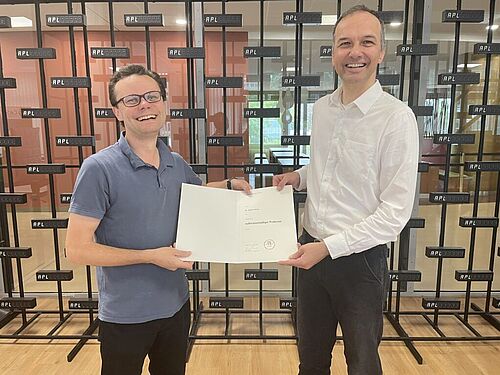Cătălin Hrițcu, Tenured Faculty and leader of the Formally Verified Security group of the Max Planck Institute for Security and Privacy and Principal Investigator of the Cluster of Excellence CASA, was appointed Adjunct Professor (ger. "außerplanmäßiger Professor", APL) of the Horst-Görtz-Institute for IT Security, Faculty of Computer Science of the Ruhr-University Bochum, by the Rector of Ruhr University Bochum in May for his outstanding achievements in research and teaching.
Prof. Hrițcu explores practically relevant security problems through the lens of formally verified security. This includes the development of mathematical definitions for security goals, the development of efficient mechanisms to enforce security according to the goal definitions, and the construction of formal proofs that the security goals have actually been achieved.
For instance in his ERC Starting Grant project SECOMP “Efficient Formally Secure Compilers to a Tagged Architecture” this methodology was used to create the first formally secure compilation chains from compartmentalized code in realistic programming languages like C down to tagged architectures and capability machines, which enable efficient low-level enforcement mechanisms. Formally verifying security for these compilation chains required developing more scalable proof techniques and using proof assistants such as Coq and F* to interactively construct machine-checked proofs, which can be refactored, maintained, and evolved as if they were programs.
Before his time in Bochum, Cătălin Hrițcu conducted research at the Inria research institute in Paris, at Microsoft Research in Redmond, and at the University of Pennsylvania. The newly appointed professor speaks Romanian, English, French, Italian, and German and has, through his various research stations, built up a large international network. The founding of the Max Planck Institute for Security and Privacy in 2019 finally drew the top researcher to Bochum, where he was since then granted German citizenship in a ceremony led by Lord Mayor Thomas Eiskirch in September 2023.
General note: In case of using gender-assigning attributes we include all those who consider themselves in this gender regardless of their own biological sex.


